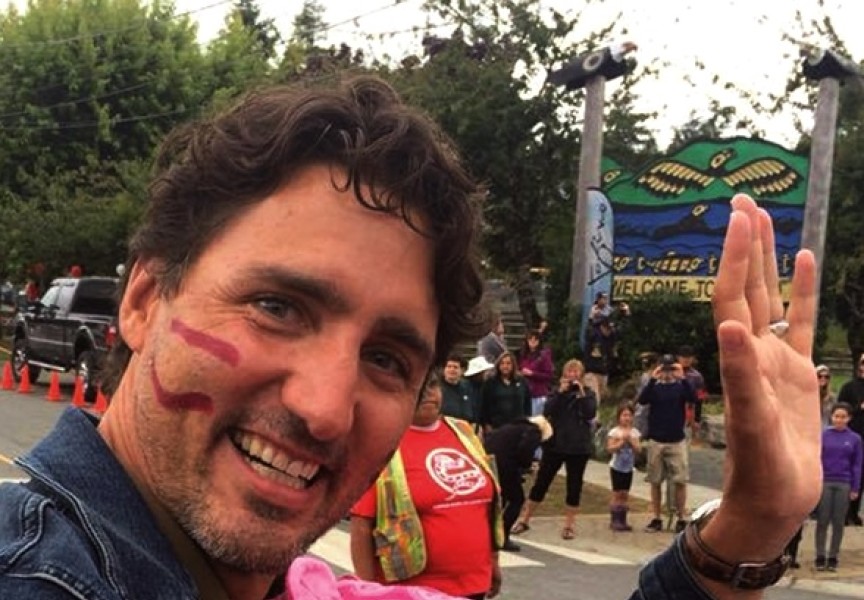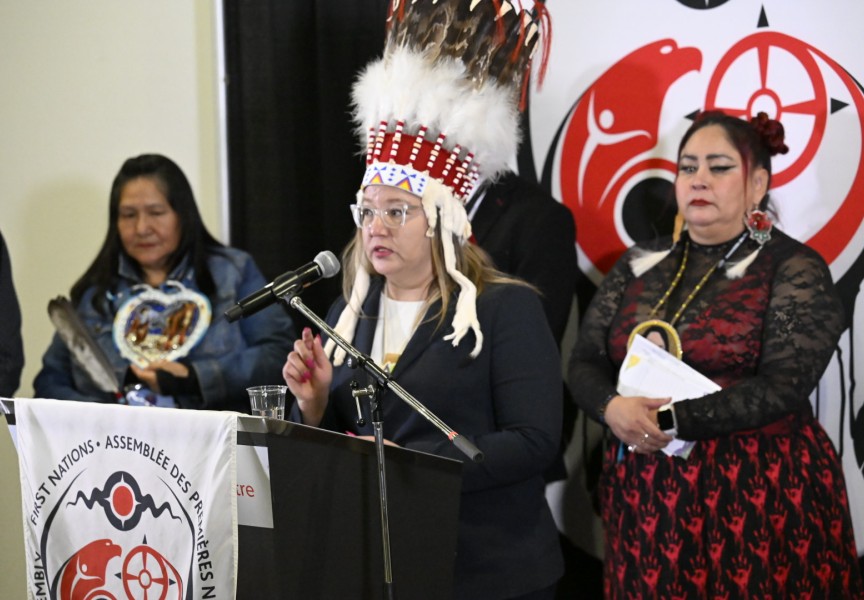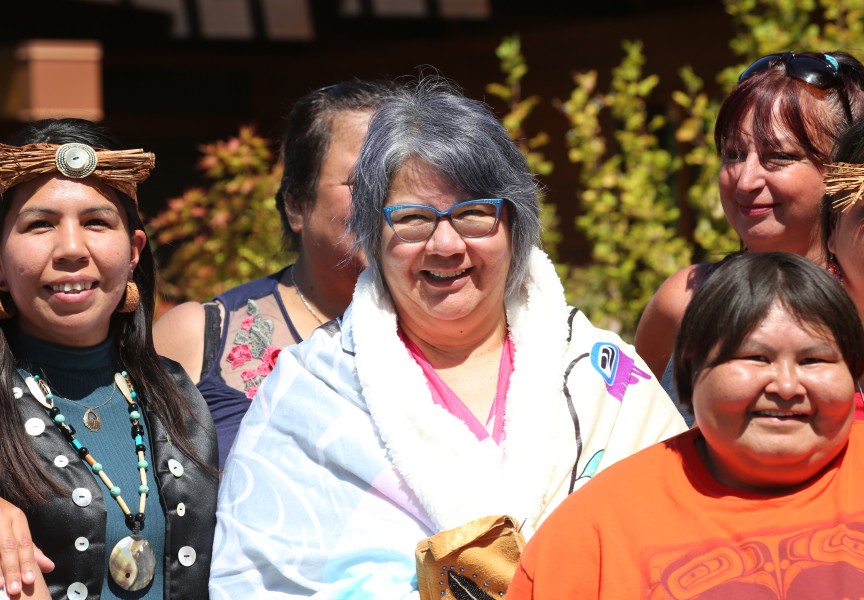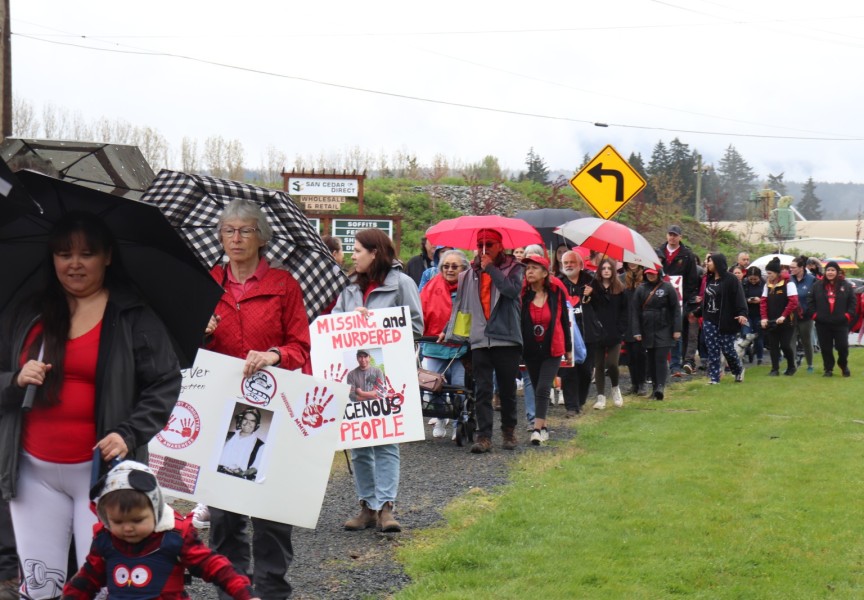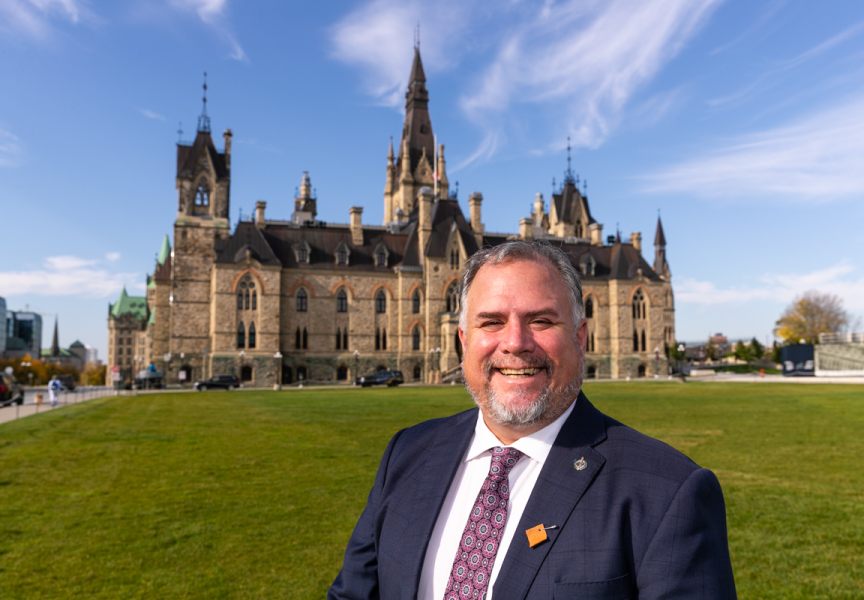First, let me express my sincere thanks to all of those who reached out to wish me well in the past week. Indeed, I am making good progress. I am keen to return to my full duties reinvigorated later this week.
As you know, we have reached a critical moment in our history. Recent events have helped to win our issues a higher priority among Canadians and with Canadian governments than at any time in recent years. The proud and determined voices of our peoples, their actions from coast to coast to coast have achieved this unprecedented attention.
The National Executive of the AFN and I are going to maintain this pressure on those governments, as it presents the greatest opportunity to make real progress for all of our peoples in too many years. Our demand for greater justice, fairness and political, social and economic development has never been closer to achievement.
It is important that we remain united behind these demands, the agenda adopted by our peoples in one Assembly after another. Some have been critical of that process, and critical of our decision-making structures. They are not perfect. Some reflect the colonial past we reject. They can be improved and that is a discussion we must have. Today’s AFN is the creation of our elders, building on earlier structures they knew needed reform. Tomorrow’s AFN will continue that process.
As we engage in these discussions, we must ensure that dialogue does not prevent us from seizing this moment to achieve change. Our priority, our focus must remain seeking the changes we have fought for, for so long, in the lives of our peoples. Every First Nation, and every Treaty area, must make the choices that are best for them. Together we can lead the momentum to create this opportunity for all our peoples.
As you know, as we have reported in detail, we won progress in our January 11th meeting with the Government of Canada. Together, the Chiefs, leaders and elders who joined that meeting achieved unprecedented movement on an issue essential to winning real progress on any of our issues. We won a commitment to political oversight and direction from the highest level of government – from the Prime Minister, his senior officials and those of the Privy Council Office.
In addition, a mandate has been established to advance high level dialogue on fundamental matters of Treaty implementation as determined by Treaty nations, and on comprehensive claims reform. There was a frank exchange on each of the eight items presented and commitment to deliver on the promise of education that every First Nation child and parent can be proud of and action to address the appalling tragedy of our murdered and missing women.
On every one of our priorities, we will continue to press for justice, for fairness, for respect and for change as determined by First Nations. It is our responsibility to drive change for our children, grounded in our rights and culture, we must be prepared to seize every opportunity to achieve the future they deserve.
As a young leader of my community I had the privilege of learning from the wisdom of our Elders. As a leader in British Columbia, I had the honour to be counseled by Elders, from across Canada. As a leader at the national level for the past four years, I have learned from all our former leaders, from the current and former leaders of many diverse Nations. They have described the sometimes painful process of building our structures and our organizations.
At many different points, there have been periods of disagreement and discord. But, at each point, when our peoples have engaged in vigorous debate, we have also listened and respected one another. We overcame each of those challenges while respecting the autonomy of each Nation.
We have always recognized that our peoples and their leaders are our decision-makers. As leaders, we come together to advocate, to fight for the achievement of the demands they have chosen.
That process always involved change. When we transformed the National Indian Brotherhood into the Assembly of First Nations, we did it during the politically charged atmosphere of the constitution talks. In December 1980, our Declaration of Nations was adopted creating the foundation for the transformation to the Assembly of First Nations.
We come together as the Assembly of First Nations, as it says in our Charter, “to respect our diversity, to practice tolerance and work together as good neighbours, to unite our strength to maintain our security, and to employ national and international machinery for the promotion of the political, economic and social advancement of our peoples.”
In 2005, the AFN Renewal Commission encouraged us to look to the future and to establish the conditions that will ensure our organization is respected by all levels of Government, is rooted in our languages and cultures, is representative of the diverse Nations we serve and, most importantly, is responsive to the demands of our Nations and our peoples. Many changes were made, many more conversations remain.
Let us ensure that those conversations are conducted with respect, respectful of our traditions, respectful of each other, and respectful of our different approaches to winning progress for our peoples. With the wisdom of our elders, and with the determination of our peoples, we can seize this moment of real opportunity. If we remain inspired and strengthened by the vision of a better day for every one of our children, we can win these victories together.
I look forward to our continued work together, to supporting and respecting one another, to serving our people…and most of all to achieving the that better life for all our peoples together with you.
Kleco, Kleco
Shawn A-in-chut Atleo



